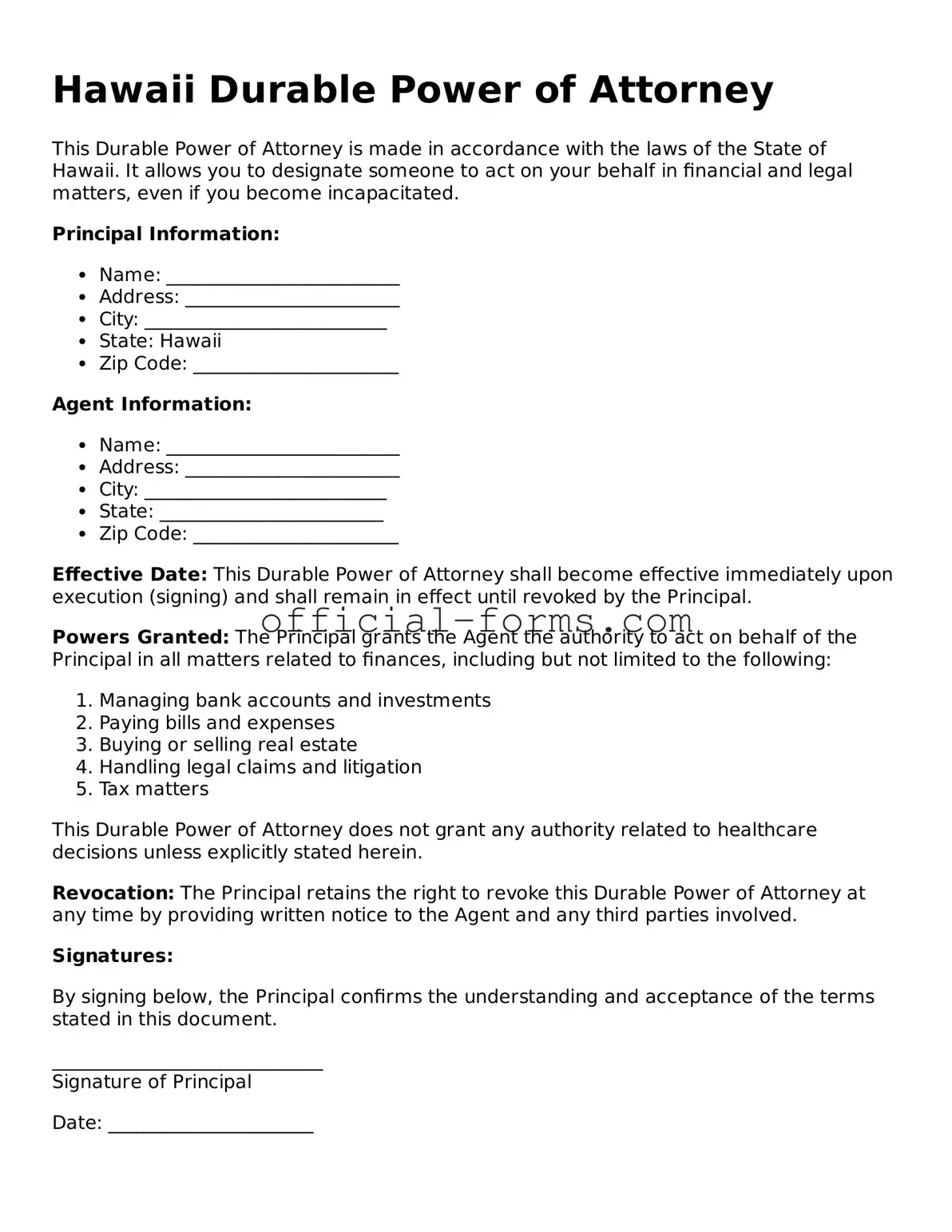Official Hawaii Durable Power of Attorney Document
A Hawaii Durable Power of Attorney form is a legal document that allows you to appoint someone to manage your financial and legal affairs if you become unable to do so yourself. This form ensures that your chosen agent can act on your behalf, providing peace of mind during difficult times. Understanding its importance and how to properly execute this document is essential for effective planning.
Open My Durable Power of Attorney Now

Official Hawaii Durable Power of Attorney Document
Open My Durable Power of Attorney Now
Don’t leave your form incomplete
Finish Durable Power of Attorney online quickly from start to download.
Open My Durable Power of Attorney Now
or
➤ PDF
